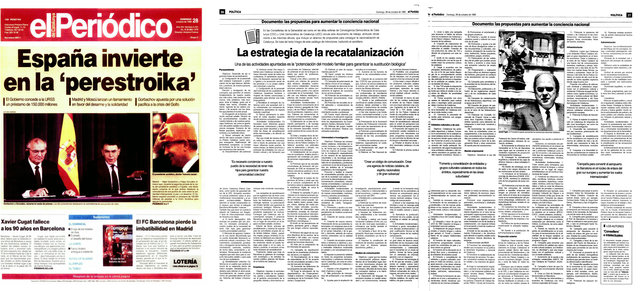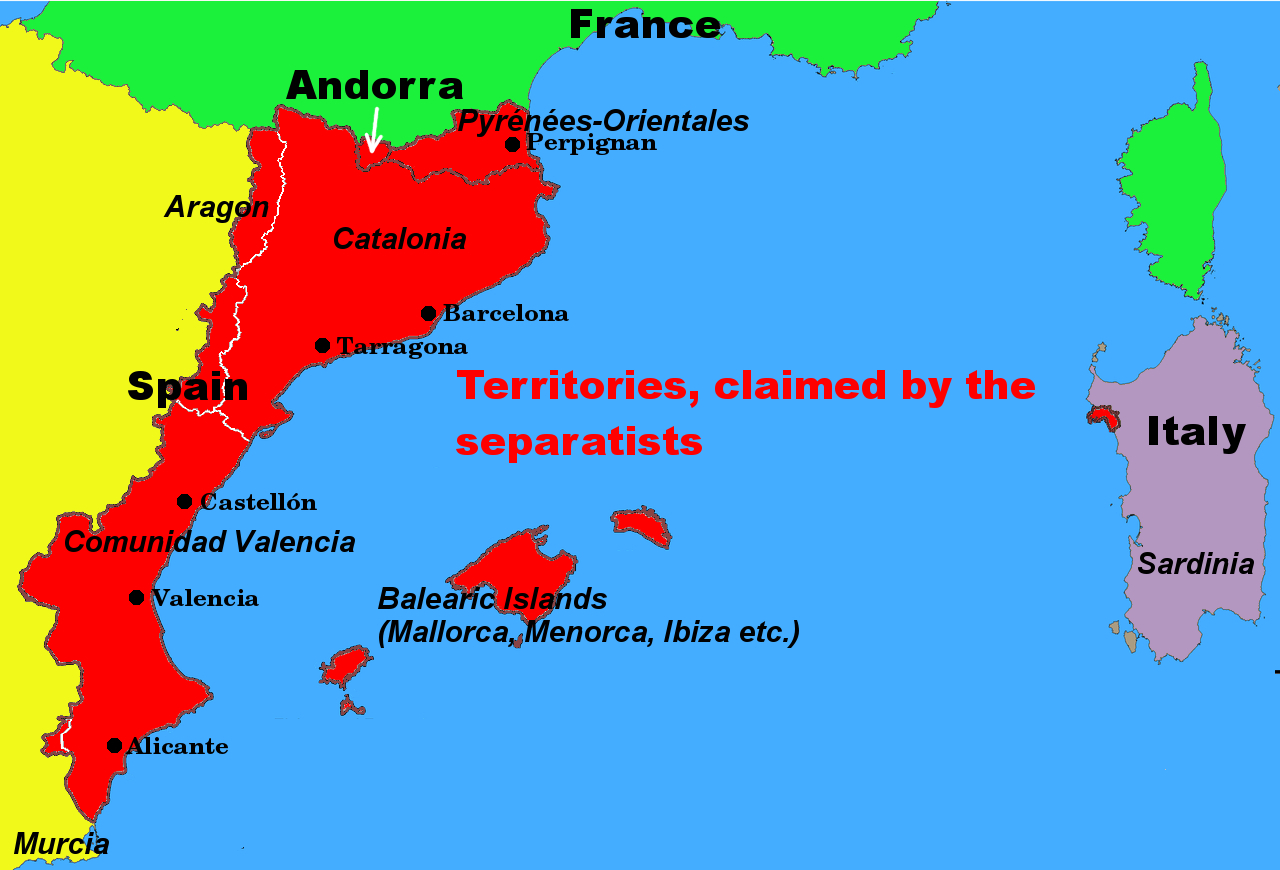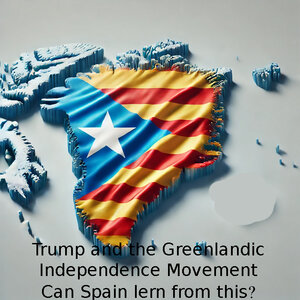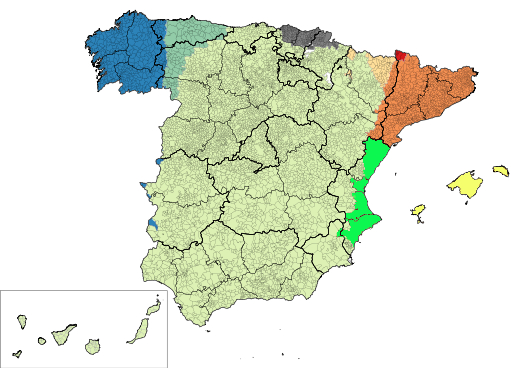Articles from the year
EU: Equal rights for Valenciano!
The EU and linguistic minorities
I had to read twice: The European Parliament reproaches Sánchez that Valenciano has the same status and the same right as Catalan to be an official language. (headline on eldebate.com)
When I first read this headline, I understood: Valenciano must have the same rights as Spanish and thought, what has happened now? It is self-evident, and once again there is confusion. Languages have no rights, only humans have rights - to use their own language. Moreover, the government of the Comunidad Valenciana seems to discriminate less against the Spanish-speaking majority than the governments in the other regions with regional languages (Catalonia, the Basque Country, Galicia and the Balearic Islands).1
Then I realised it was about equal rights for Valenciano and Catalan! What was it about?
Click here to read the article »
What's next?
Exhaustion in the fight against language imposition?
Organised activities against the language imposition in Valencia have been decreasing for months. Hablamos Español has switched to supporting those affected individually in their plight against the continuing extant language impositions of Valencian administrations. The lack of organised activities by opponents of language impositions and unionists has also led to my posts on this blog being reduced.
The language imposition has not ended in Valencia or in other Spanish areas with a regional language. Citizens in such areas are being bullied on a daily basis. Pupils in Valencia are still forced to learn Valenciano against their will and that of their parents. What is the reason for the exhaustion in the fight against this paternalism? And what happens next?
Click here to read the article »
Follow the money!
Catalan or Valenciano?
Influence of Catalan NGOs on Valenciano
Donald Trump's cut-off of funds for USAID1 drew the attention of many to the fraudulent labelling of NGOs, i.e. non-governmental organisations and governmental organisations alike.
Shortly afterwards, this fraud became very clear once again, especially to Germans, through a CDU (conservatives) enquiry, the so-called 551 questions to the Federal Government.
Reason enough to take another look at the Catalan governmental and non-governmental organisations and seek an answer to the question of what is so special about them.
Click here to read the article »
50,53% / 49,47%
A draw or a victory for indoctrination
The question at this „election“ was not: Who should decide on the language of instruction, politicians or parents? Instead, it was Valenciano versus Spanish and the parents were already the losers. But the intention was to distract from this and so it seemed as if languages had fought. El Mundo put it like this: „Valenciano wins by a narrow margin ... only in Alicante does Castilian prevail.“
The organisation Hablamos Español had warned early on about the massive indoctrination: „We have received complaints from families ... whose children came back from school with a booklet whose content was a crude indoctrination aimed at convincing families to choose Valenciano, regardless of their children's mother tongue, using errors and manipulations. It ignored the undeniable benefits of mother-tongue education, as advocated by the United Nations (UN) and recommended by all independent educators ... recommended.“
Given the massive indoctrination and the overwhelming majority1 of native Spanish speakers in Valencia, the percentage result (50.53% to 49.47%) and the low voter turnout (58.61%) raise some questions. 50.53% of 58.61% equals only 29.6% of 100% of eligible voters, not even a third.
Click here to read the article »
Free choice of languages - really?
Valenciano versus Spanish?
Until yesterday, „elections“ were held in Valencian schools. Before the parliamentary elections, the current government had promised that parents would decide on the language of instruction. As soon as it came to power, the promise was „forgotten“ and a law was passed that stipulates at least 25% Valenciano.
In order to make people forget this fraud, so-called elections have now been held in schools, in which parents are supposed to decide whether their children should receive additional Valenciano lessons.
Unfortunately, this „election“ has often been interpreted as „Valenciano against Spanish“, as can be seen in the so-called social media, but also in the press.1
Click here to read the article »
Greenland
Separatism in the Light of Geopolitics
There is probably no connection whatsoever between the Catalan and Greenlandic independence movements.
Both have a language problem in common. RT.de reports that six years ago „the Inuit language1 of Greenland's representatives in the Danish parliament“ was banned „by no longer having interpreters available and all documents being written only in Danish“. Chatgpt.com reports that in October 2024 „there was an incident in which Greenlandic MP Aki-Matilda Høgh-Dam had to leave the podium because she gave her speech exclusively in Greenlandic1 and refused to translate it into Danish“.
In Greenland itself, the majority speaks Kalaallisut, which has also been the official language since 2009. Danish is the most important second language. The question is, what can Spain learn from this situation?
Click here to read the article »
Subscribe Now!
Myths and deceptions of Catalan nationalism

Here you'll find the translation
Languages in Spain
Spanish, Basque, Catalan, Mallorquin, Valenciano etc.
The strategy of recatalanization
 1980 the Spanish journal "El Periodico" published a secret document about the strategy of the Catalan government. It shows in a frightening way the actual spiritual world of the separatist leaders.
1980 the Spanish journal "El Periodico" published a secret document about the strategy of the Catalan government. It shows in a frightening way the actual spiritual world of the separatist leaders.Now it is available in english translation.
Pancatalanism
the separatist's imperial claim
 The Catalan government exports the conflict into communities with Catalan population, supporting all efforts of the separatists including financial means to destroy Spain.
The Catalan government exports the conflict into communities with Catalan population, supporting all efforts of the separatists including financial means to destroy Spain. An important tool is the establishment of a language dictatorship that is not afraid to use the same means as Franco.
Separatist indoctrination

Click here to read the study
Language imposition and democracy

An essay in 6 parts on the potentially violent effect of language imposition containing contributions from South Africa, Catalonia, Ukraine and France.
go to part 1
Publications
 The title says: "Catalonia, a conflict is exported. Insights of a migrant"
The title says: "Catalonia, a conflict is exported. Insights of a migrant"Sorry, up to now, this book is only available in German. However, drop us a line, if you are interested to learn more Contact.







